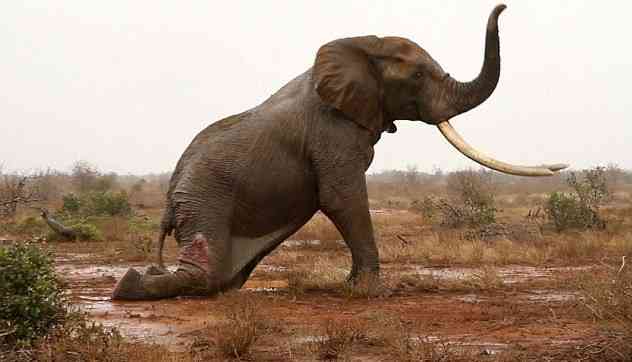
TRADITIONAL leaders in Kariba district have condemned wildlife poaching in the area, adding that the crime was detrimental to the development of tourism in the district.
Kariba’s tourism is anchored on wildlife, hence the need for conservation, but despite a significant drop in elephant poaching, the practice was rampant among other smaller animals.
Speaking during the Biodiversity Conservation Indaba held in Kariba recently, the traditional leaders called for more action to ensure Zimbabwe protects its natural resources.
“We must remain vigilant and proactive as intelligence has shown us that the higher the illegal demand of game products and the rewards translate to an increase in the rate of poaching,” Chief Musambakaruma, born Muchaneta Chacharika, said.
“Tourists come from as far as China, Europe and the Americas to view our wildlife, so we must protect them from all forms of threats.”
Chief Mola, born Charles Rare, also weighed in saying the impact of poaching was being felt in the rural areas.
He urged authorities to work with traditional leaders in curbing the vice.
“As traditional leaders, when poaching rise our communities are affected. We, therefore, denounce poaching at all levels as it has no benefit to our communities,” Chief Mola said.
- ZVDT laments lack of development in Zambezi Valley
- €30m set for Kariba Dam wall rehab
- Letters: Democratise natural resource governance
- Lubimbi villagers relocation set for next year
Keep Reading
“Our success in the protection of this iconic species (elephants) will obviously translate to our success in protecting many other endangered species that also rely on or occupy the same habitats.”
Meanwhile, Zimbabwe Parks and Wildlife Management Authority (ZimParks) mid-Zambezi Cluster regional manager Felix Chimeramombe said the country should use successes in protecting elephants as a test case for conservation efforts.
“I have hope that our children and future generations will have the opportunity to inherit our heritage and observe elephants in the wild, co-existing with local communities who have a vested interest in protecting them and their habitats,” he said.
African Wildlife Foundation country director Olivia Mufute said Zimbabwe had not experienced elephant poaching in protected areas like Mana Pools recently.
“As the African Wildlife Foundation, we are happy to have championed cordial relations between Zimbabwe and Zambian wildlife conservation law enforcement agents,” she said.
“The development promotes effective anti-poaching efforts in the Mid Zambezi Valley and significantly contributes to conserving wildlife, reducing poaching and trafficking as major causes of decline of key wildlife species.”
Law enforcement agencies from Zimbabwe and Zambia undertook a joint river patrol in September last year to strengthen cross-border wildlife conservation and anti-poaching patrol effectiveness in the Mid Zambezi Valley.
The patrol which started from Chirundu to Kariba Dam was done through funding from a CITES Monitoring the Illegal Killing of Elephants grant.










